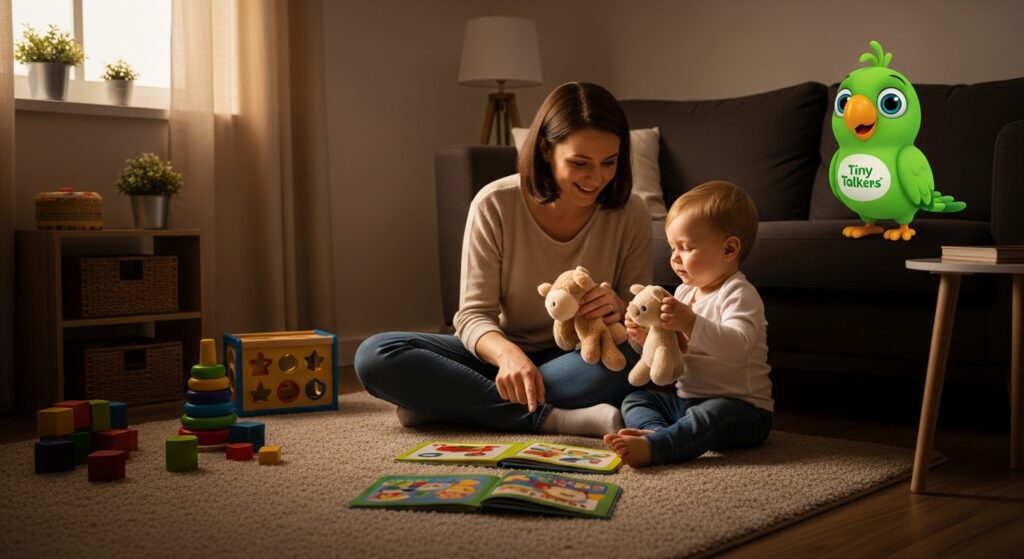As parents, witnessing your toddler’s first words is a milestone that fills your heart with joy and pride. Language development is a fascinating journey, and understanding the typical timeline can help you navigate this exciting phase with confidence. While every child is unique and may progress at their own pace, having a general month-by-month guide can provide clarity and reassurance.
Understanding Toddler Language Development
Language development in toddlers involves more than just speaking words. It encompasses listening, understanding, and the ability to express thoughts and emotions. Here’s a closer look at what you can generally expect as your toddler grows.
12 to 15 Months: The First Words
By their first birthday, toddlers often start to say their first recognizable words. These are usually simple words such as “mama,” “dada,” or the name of a favorite toy or pet. During this stage, toddlers are also honing their listening skills and beginning to understand simple instructions.
- Key Milestones:
- Babbling with intonation.
- Recognizing and responding to their name.
- Attempting to imitate words they hear frequently.
16 to 18 Months: Expanding Vocabulary
As your toddler approaches 18 months, their vocabulary typically starts to expand. By now, they may know up to 20 words and are beginning to combine them into simple phrases. This is a period of rapid acquisition, where toddlers may surprise you with new words almost daily.
- Key Milestones:
- Using common nouns and verbs.
- Following simple commands.
- Engaging in basic two-word combinations like “more milk.”
19 to 24 Months: The Vocabulary Explosion
This period often witnesses what is known as a “vocabulary explosion.” Toddlers may learn new words rapidly and start using them in various combinations. By the time they reach their second birthday, they might know around 50 words or more and begin forming simple sentences.
- Key Milestones:
- Understanding more than they can express verbally.
- Using two to three-word sentences.
- Combining words to express needs and emotions, e.g., “want cookie.”
25 to 30 Months: Forming Sentences
As toddlers transition into their third year, their communication skills become more sophisticated. They start forming more complex sentences and their vocabulary continues to grow, often reaching 200 words or more by the age of 30 months.
- Key Milestones:
- Asking simple questions, such as “What’s that?”
- Using pronouns like “I,” “you,” and “me.”
- Beginning to understand and use plurals and basic prepositions.
31 to 36 Months: Conversational Skills
By the age of three, toddlers are usually engaging actively in conversation. They can follow simple storytelling, understand basic concepts of time, and express ideas more clearly. Their vocabulary might expand to 500 words or more, and they can construct sentences with multiple words.
- Key Milestones:
- Participating in back-and-forth conversations.
- Using sentences with five or more words.
- Demonstrating understanding of “why,” “where,” and “how” questions.
Supporting Your Toddler’s Language Development
While the above timeline provides general guidelines, it’s important to remember that variations are completely normal. Here are some ways you can support your toddler’s language journey:
-
Engage in Daily Conversations: Talk to your toddler throughout the day about what you’re doing, seeing, or hearing. This helps them learn new words and understand the context in which they’re used.
-
Read Together: Books are a fantastic way to introduce new vocabulary and concepts. Choose age-appropriate books and make reading an interactive activity.
-
Sing Songs and Rhymes: Music and rhymes are not only fun but also help toddlers learn language patterns and sounds.
-
Encourage Imitation: Imitation is a natural part of learning. Encourage your toddler to repeat words and sounds, and offer gentle corrections when needed.
-
Be Patient and Positive: Celebrate your toddler’s attempts to communicate, whether successful or not, and provide positive reinforcement to encourage continued effort.
When to Seek Professional Advice
While many children develop language skills at their own pace, there are certain signs that may indicate the need for professional evaluation. If by 18 months your toddler is not using any words, or by age two they are not combining words, it may be beneficial to consult with a pediatrician or speech-language pathologist.
Conclusion
Witnessing your toddler’s language development is a rewarding experience filled with unforgettable moments. While the timeline of language acquisition varies from child to child, staying informed about the usual milestones can help you support your toddler’s growth effectively. Remember, the key to nurturing language skills is patience, encouragement, and engagement. With your support, your toddler will continue to blossom into a confident communicator, ready to express themselves and explore the world around them.

